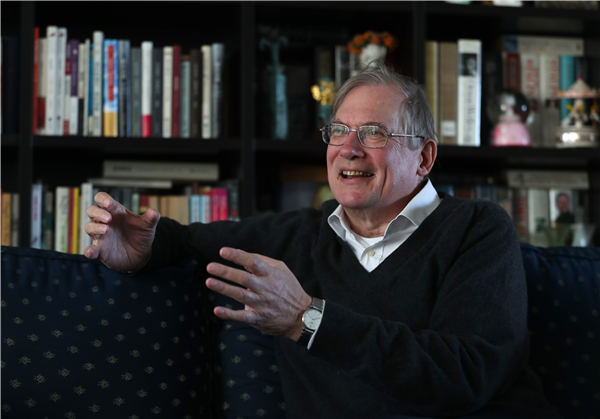Trading up for a writer's life
By Andrew Moody | China Daily | Updated: 2018-04-20 07:10

Adam Williams has had two remarkable careers: one as a prominent British business figure in China and another as a best-selling author of Chinese historical fiction.
Adam Williams believes it is wrong to impose the values of today on historical figures of the past.
The 64-year-old author and businessman argues that people are very much prisoners of their own times.
"I am a historical novelist. If I am writing about the 1100s, the people then were different. They thought in a different way. They had different standards and the society they lived in had different values," he says.
Williams, who was speaking in his expansive book-lined apartment off Upper East Street in Beijing, has combined two remarkable careers: he's both one of the most prominent British business figures in China and a bestselling Chinese historical fiction writer at the same time.
He says the current trend of accusing historical figures of being supporters of slavery, racist colonialists or of some other beliefs now deemed politically incorrect could render the very process of writing about the past impossible.
"If you villainize every slaver in the United States before the Civil War or in Europe or anywhere else, then the logic of that is that every Roman who ever lived was a villain. There becomes no virtue in anyone from the past," he says.
Williams remains best known for his trilogy, The Palace of Heavenly Pleasure, The Emperor's Bones and The Dragon's Tail, all published more than a decade ago and which fictionalize China's history from just before the Boxer Rebellion in the late 19th century to the "cultural revolution" (1966-76) and beyond. The novels, which feature Westerners living in China, partly reflect his own history since he is the fourth generation of his family to have lived in China, starting with his two maternal great grandfathers - one a railway engineer who came to China in 1893 and the other a medical missionary who arrived three years later.
























